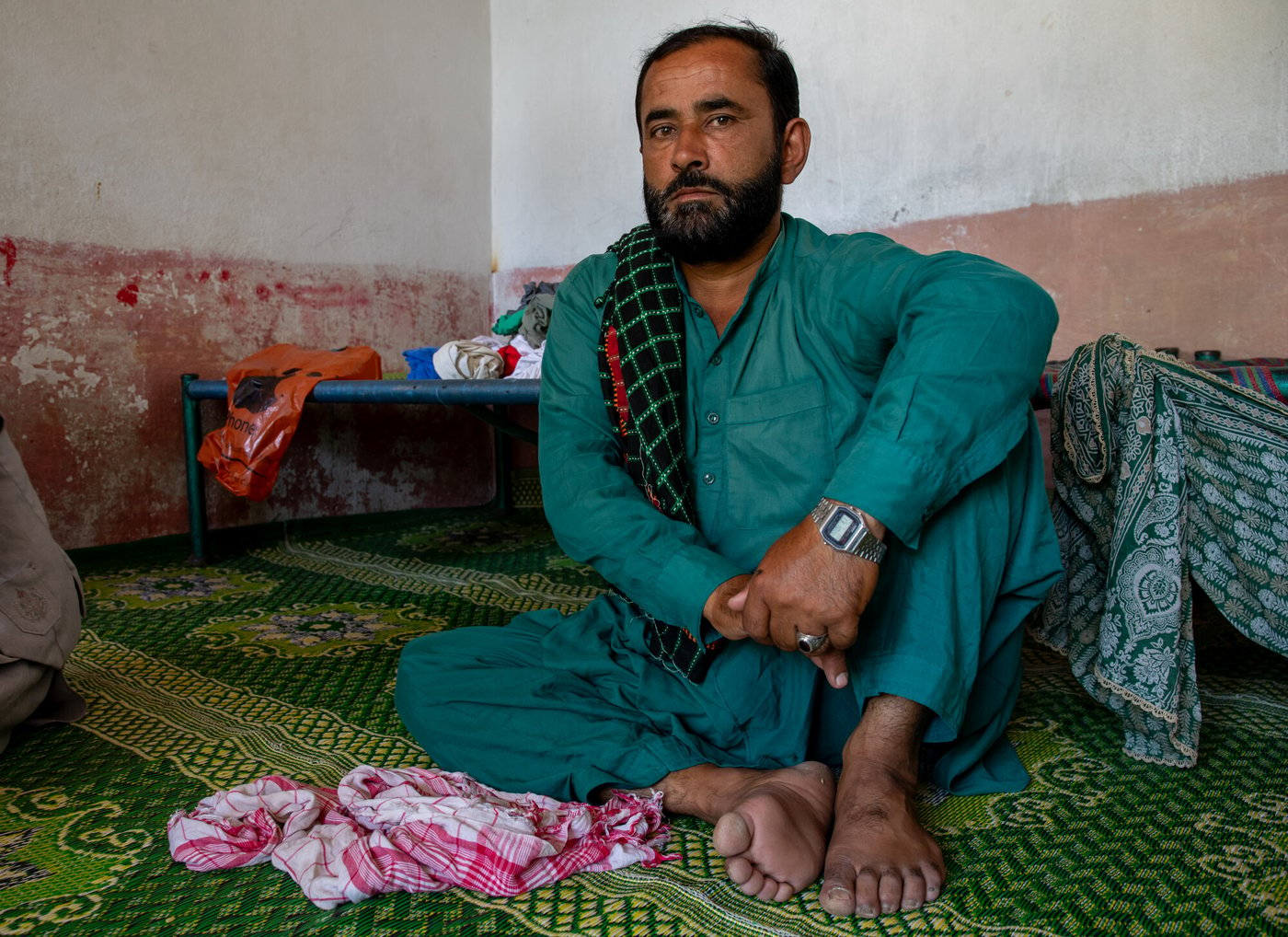Since early April 2025, the Torkham border crossing between Afghanistan and Pakistan has witnessed a significant surge in the return of Afghan nationals. According to the United Nations, more than 180,000 Afghans re-entered the country between 1 April and 7 June 2025.
This wave of returns marks the continuation of a broader trend, and is reminiscent of the mass movements observed in October 2023, when daily returnee numbers ranged between 9,000 and 10,000. These Afghans are returning to a country grappling with a severe humanitarian and economic crisis, where almost 23 million people are already in need of humanitarian assistance.
A difficult homecoming
Sayed Alam, 46, is the father of six sons and three daughters. On 16 April 2025, he returned to Afghanistan from Pakistan with his family. Like tens of thousands of others, he crossed the Torkham border with no clear plan for what lay ahead.
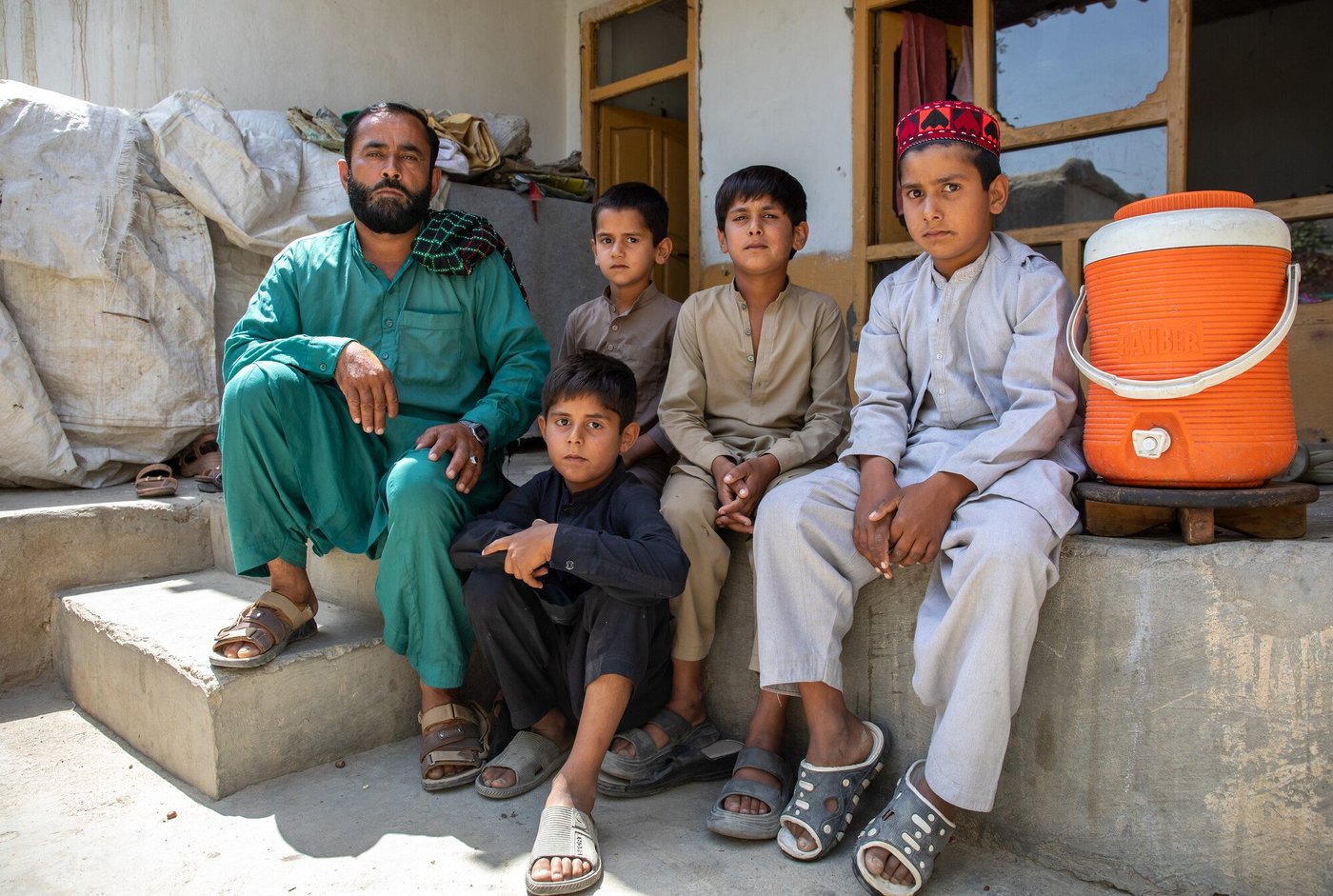
The family spent three nights in a transit camp near the border before managing to rent a small shelter in an informal settlement on the outskirts of Jalalabad city. The rent of 1,000 Afghanis a month – about US$15 – might not look too much, but for someone with no job and no stable income, it’s a heavy burden.
The conditions under which returnees arrive are extremely challenging. Most come back with few or no belongings, and many face deep uncertainty about the future. In a country where poverty and high unemployment are widespread, returnees express serious concern about their ability to find work and rebuild their lives.
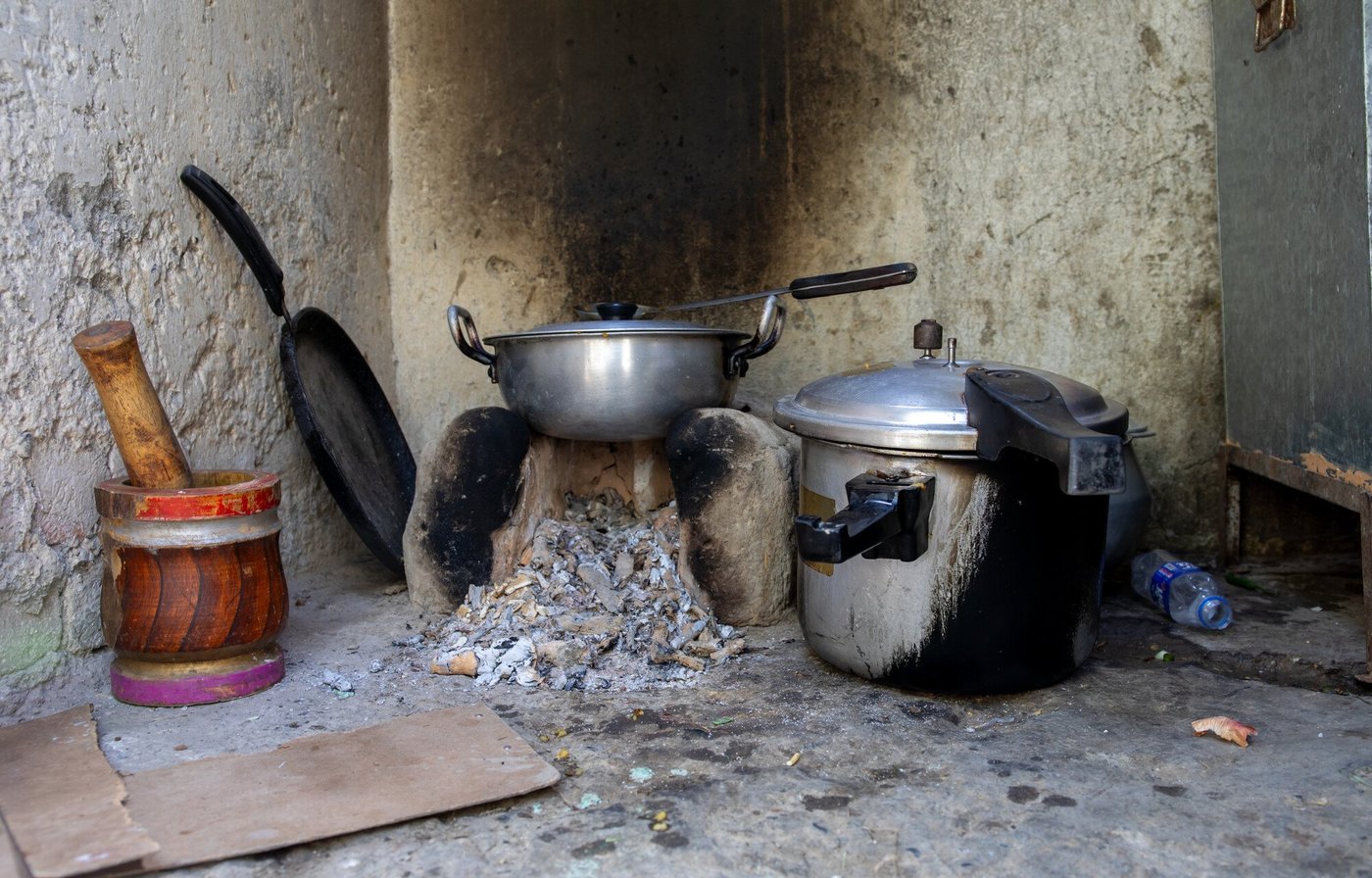
Sayed Alam is originally from Rodat district in the eastern province of Nangarhar, but he does not want to return there. “I have nothing left,” he says. “No land. No house. Nothing.”
He left Afghanistan 25 years ago, fleeing hardships, and settled in Pakistan, where all of his children were born. In Pakistan, his children were able to go to school. But now, back in Afghanistan, he fears for their education and future.
Sayed Alam looks back on his life in Pakistan with fondness. Having spent many years in the city of Sialkot, he says: “Life there was easier, and I was able to support my family. My children could attend school and receive an education. But since returning to Afghanistan, I haven’t been able to find any work.”
No work and little food
Shortly after arriving in the informal settlement, Sayed Alam’s wife fell ill. Desperate, they went to the nearest public clinic, but it was overwhelmed with patients and unable to help. “I had to pay out-of-pocket for her treatment – money I could scarcely afford to spend,” he says.
When asked about his biggest concerns, he doesn’t hesitate: “There is no work. I am unemployed and can't earn anything. My eldest son was born in Pakistan and doesn’t know how to navigate life here. He also can’t help us financially.”
With visible worry, he adds: “We have a little food at home, but it won’t last. I don’t know what will happen to us after that.”
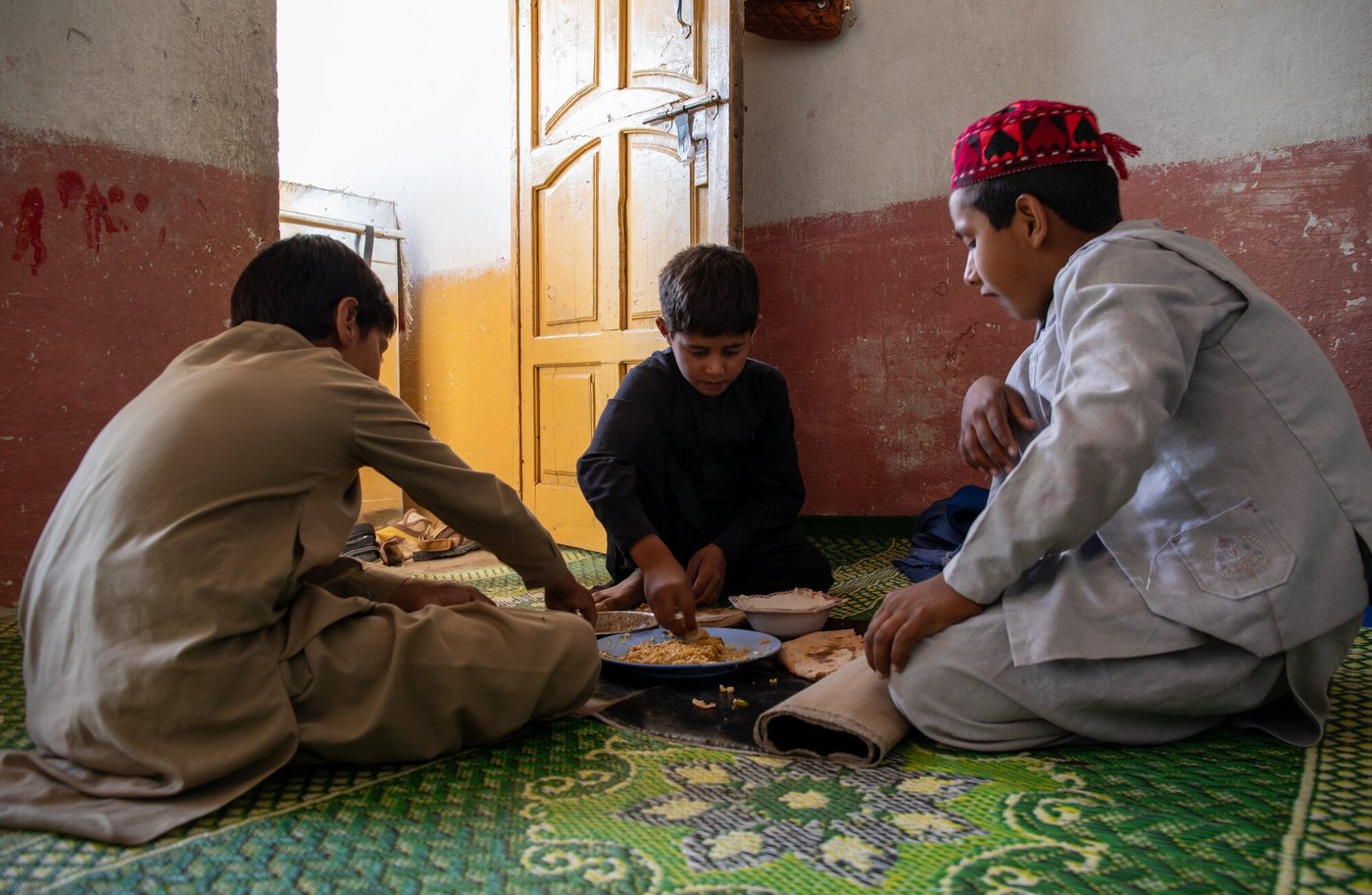
Sayed Alam’s needs are simple: shelter, food, access to basic services, and education for their children. “We just need the basics,” he says. “A place to live. Food for our children. A way for them to continue learning. I hope the international community won’t forget us.”
For Sayed Alam himself, returning to Afghanistan is manageable – he was born here, after all. But for his wife, who only ever knew life in Pakistan, it’s a shock. “Living in this camp is hard,” he says. “There’s nothing here – none of the comforts we had in Pakistan. It’s going to be especially hard for my wife.”
Strength in community
Despite all this, Sayed Alam speaks with warmth about his new neighbours and community. “They’ve treated us kindly,” he shares. “They guided me to the NRC community centre to ensure we would receive some assistance here in the camp.”
The community resource centre, run by the Norwegian Refugee Council (NRC), is currently operating with limited resources and struggling under the weight of need due to a decline in donor funding.
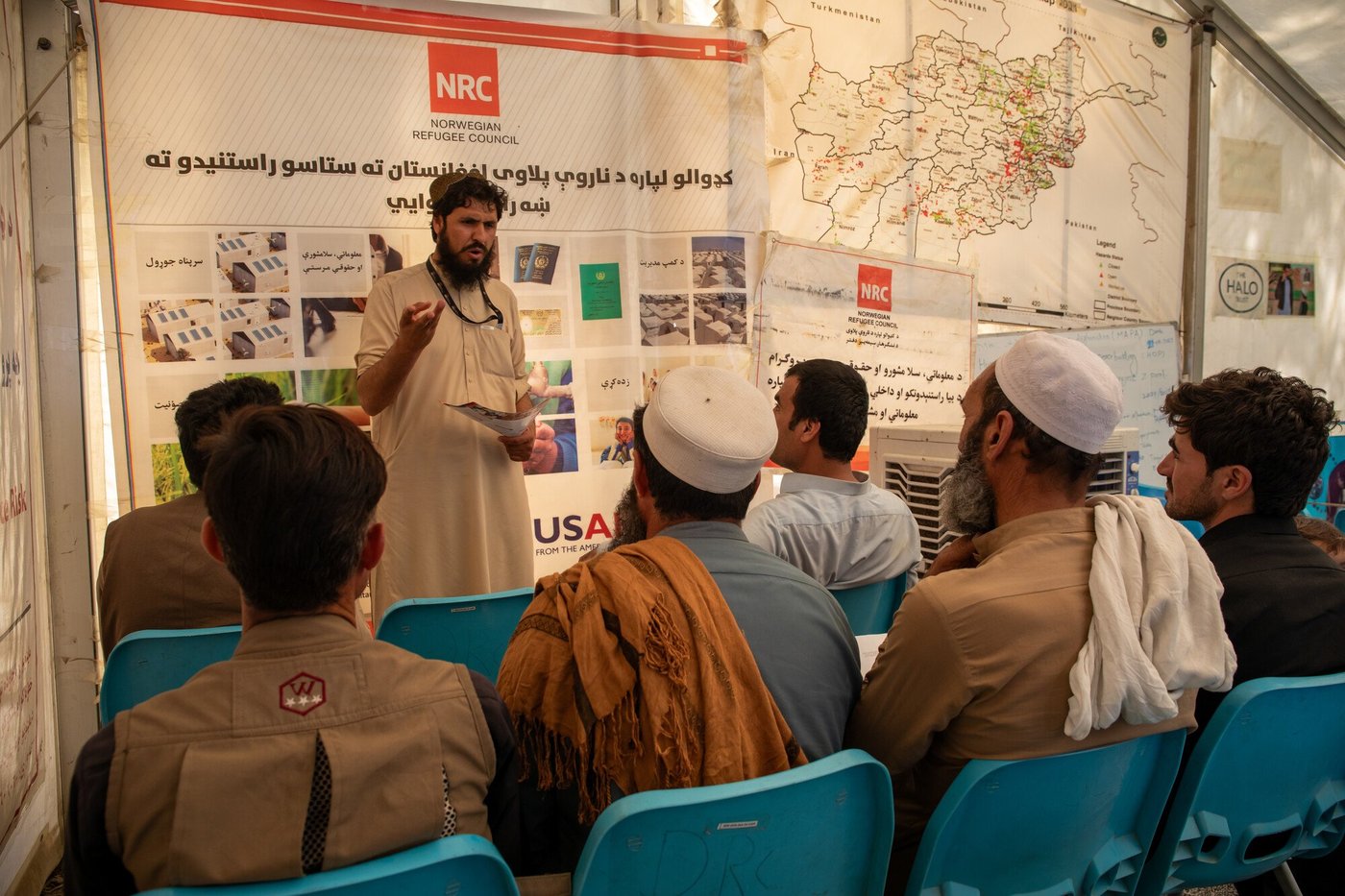
Despite these constraints, the centre continues to provide essential legal services to returnees, including information sessions, individual counseling and legal assistance. It also offers information on available services, refers vulnerable and at-risk families to other service providers, and conducts capacity-building sessions for community representatives as part of its protection programming.
NRC remains committed to supporting Afghanistan’s most vulnerable communities. We urgently call on the international community to renew its support and solidarity during this critical time.
Sign up to our newsletter to read more stories from around the world.


